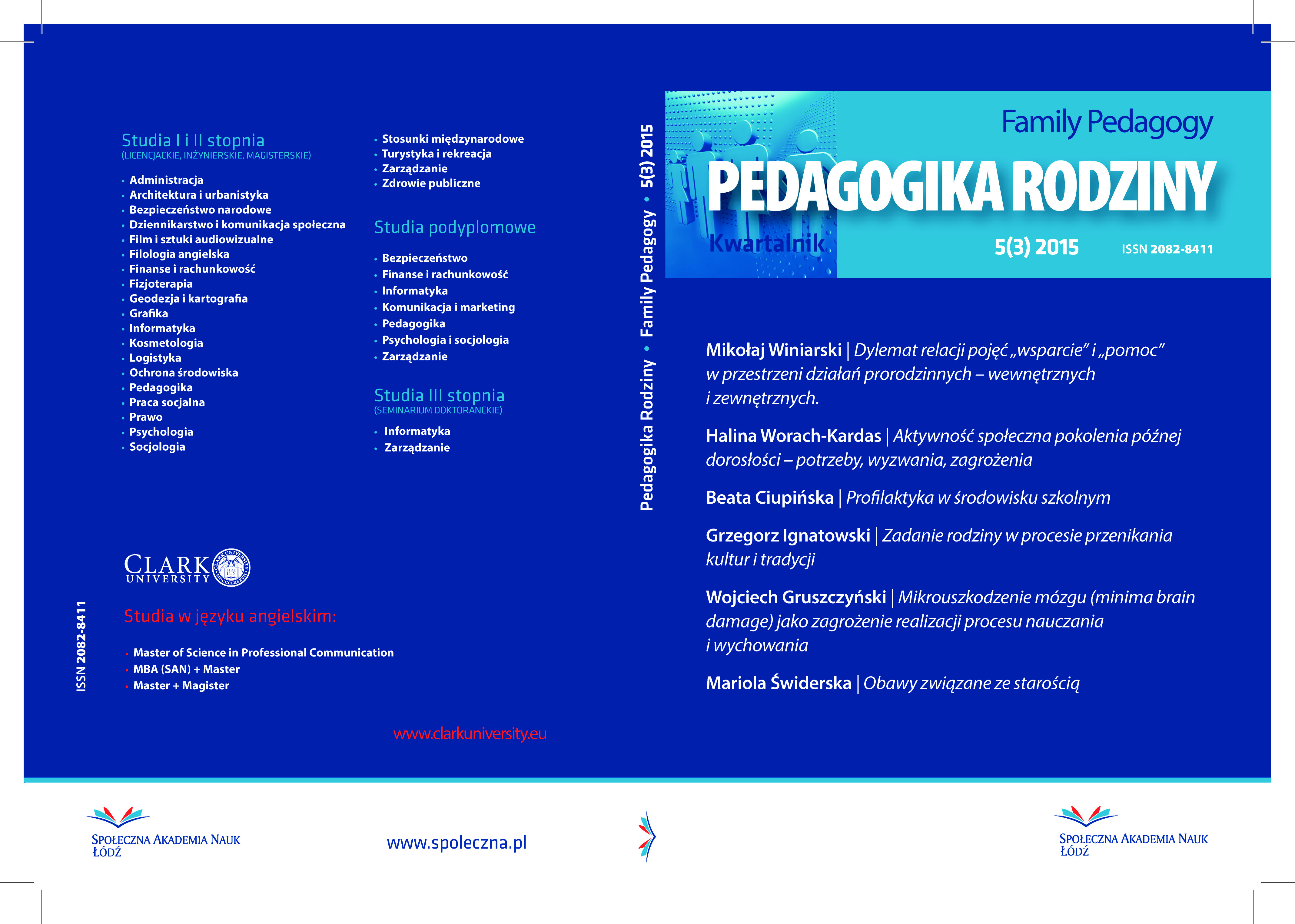Instytucjonalne rozwiązywanie problemu dziecka z syndromem eurosieroctwa
Tackling institutional child syndrome eurosieroctwa
Author(s): Lidia PawelecSubject(s): Social Sciences, Sociology
Published by: Społeczna Akademia Nauk
Keywords: Euro-orphanhood; migration; family; forms of assistance
Summary/Abstract: Poland is one of the leading countries in terms of the number of children referred to as euro-orphans. Care of a parent deprived of about 100 thousand. minors. The negative effects of migration can be seen in a variety of areas - from the consequences for the country, for the local community, the family, but especially for children, their life, development and education. Family is family migration destabilized, operates differently than the family complete, and thus interferes with children normal growth and development. In this situation, you need specific institutional arrangements aimed at helping eurosierotom. The institutions of the euro aid workers are mainly orphans - schools, psychological and pedagogical, social welfare centers, churches, but also the police, prosecutors and courts. Activities in this area deal with state and local government departments as well as various associations and foundations that operate for the benefit of families and children at risk.
Journal: Pedagogika Rodziny
- Issue Year: 5/2015
- Issue No: 3
- Page Range: 93-104
- Page Count: 12
- Language: Polish

